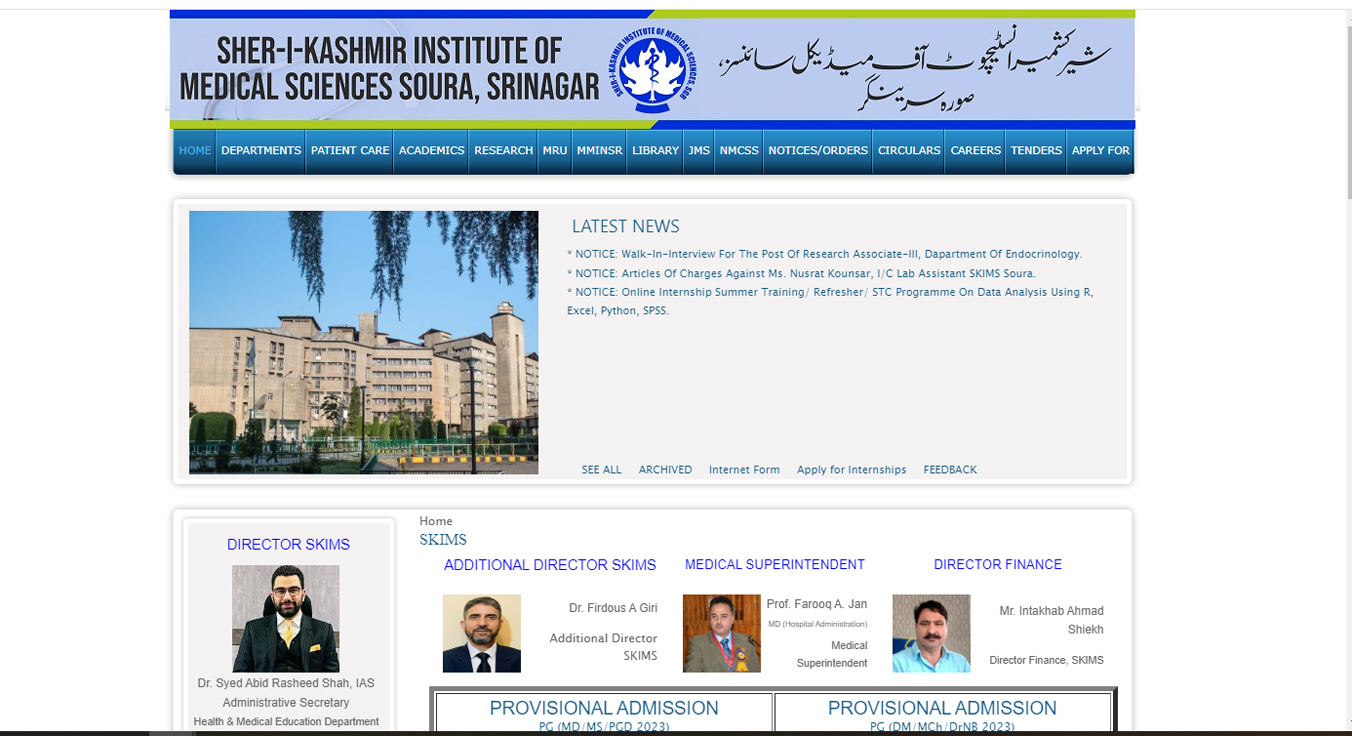Sher-I-Kashmir Instt. Of Medical Sciences, Srinagar

- Read more about Sher-I-Kashmir Instt. Of Medical Sciences, Srinagar
- Log in to post comments
- 126 views
A Diploma in Immuno-Haematology and Blood Transfusion is a specialized program that provides education and training in the field of blood banking, blood transfusion, and immune system-related issues. This diploma is designed to equip individuals with the knowledge and skills necessary to work in blood banks, laboratories, and healthcare settings where blood transfusion services are crucial. Here are some key aspects related to this diploma:
Program Duration: The duration of a diploma program in Immuno-Haematology and Blood Transfusion can vary, but it is typically a postgraduate program that may last one to two years.
Eligibility Criteria: Eligibility criteria for enrolling in a Diploma in Immuno-Haematology and Blood Transfusion program may include a Bachelor's degree in a relevant field such as medical laboratory science, biochemistry, or a related discipline.
Curriculum: The curriculum of the diploma program covers a range of topics, including blood group systems, blood transfusion techniques, immune response to blood components, testing and screening for transfusion-transmissible infections, management of blood banks, and quality control in transfusion services.
Practical Training: Practical training is a vital component of the program. Students typically undergo hands-on training in blood banks, laboratories, and healthcare facilities to gain practical experience in blood typing, cross-matching, donor screening, and other transfusion-related procedures.
Career Opportunities: Graduates with a Diploma in Immuno-Haematology and Blood Transfusion can pursue careers as blood bank technologists, transfusion medicine specialists, laboratory managers in blood banks, or professionals involved in ensuring the safety and compatibility of blood transfusions.
Accreditation: It's important to ensure that the institution offering the diploma program is accredited and recognized. Accreditation ensures that the program meets certain quality standards and is accepted within the healthcare industry.
Further Studies: Some individuals may choose to pursue further studies, such as a Master's degree or additional certifications, to specialize further in specific areas of transfusion medicine or related fields.
Regulatory Compliance: Given the critical nature of blood transfusion services, professionals in this field should be aware of and adhere to regulatory standards and guidelines set by health authorities to ensure the safety and efficacy of blood transfusions.
Individuals interested in a Diploma in Immuno-Haematology and Blood Transfusion should carefully review the curriculum, accreditation status of the institution, and potential career paths associated with the program. Additionally, staying informed about advancements in blood banking technology and transfusion medicine is essential in this field.
Diploma in Immuno-Haematology and Blood Transfusion
